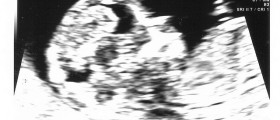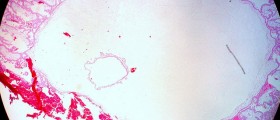
A pap smear or Papanicolau test is a very important test that every healthy woman should undergo at least every two or three years, if not more often. This test serves to detect any abnormality that may be present in the cells of the cervix. Those abnormalities may indicate HPV infection, cervical cancer or problems in endocervix or endometrium. The sooner the abnormalities are diagnosed, the better.
Causes of bleeding after pap smear
When performing a pap smear, the doctor first inserts an instrument called speculum, which opens the view of the cervix, and then, uses a spatula to scrape out a sample of cervical cells. The sample is then sent to the laboratory where it is analyzed.
A pap smear is usually completely painless, although it can be uncomfortable and cause pressure or tingling. Bleeding after this test is not unusual since the cervix can be agitated and irritated and cervical cells can be quite delicate. Bleeding should not be heavy, and it should not last for more than a couple of days following a pap smear. In most cases, it is just some spotting and traces of blood, especially after wiping.
Bleeding can also occur because of cervical polyps. Another cause of bleeding or spotting after a pap smear can be excess cervical blood. In some women during pap smear the blood rushes into the cervix and other parts of the reproductive system, which may result in some bleeding.
Bleeding after pap smear in pregnancy
A pap smear is perfectly safe for pregnant women. In fact, most doctors advise their patients who are pregnant to get tested in order to assure a safe pregnancy and a healthy fetus. Pap smear is in most countries a mandatory part of pre-natal care, because it not only detects cervical cancer but it can also warn of possible infections to the region that may harm the baby. Treating infections early in pregnancy reduces complications during childbirth and protects the fetus.
Almost all pregnant women experience light bleeding or spotting during pap smear, even those who never experienced it during previous pap smears before pregnancy. This is understandable, since in pregnancy a woman’s body undergoes a series of changes and becomes extra sensitive, especially her reproductive system.
Bleeding or spotting after pap smear in pregnancy can cause a lot of panic because bleeding can also be a sign of miscarriage. However, if it occurs after a pap smear, if it is light and if it goes away after a few days, it is perfectly normal and there is nothing to worry about. However, if the bleeding is more than light and if it persists, it is better to see a doctor and find out what is going on.




_f_280x120.jpg)












Your thoughts on this
Loading...